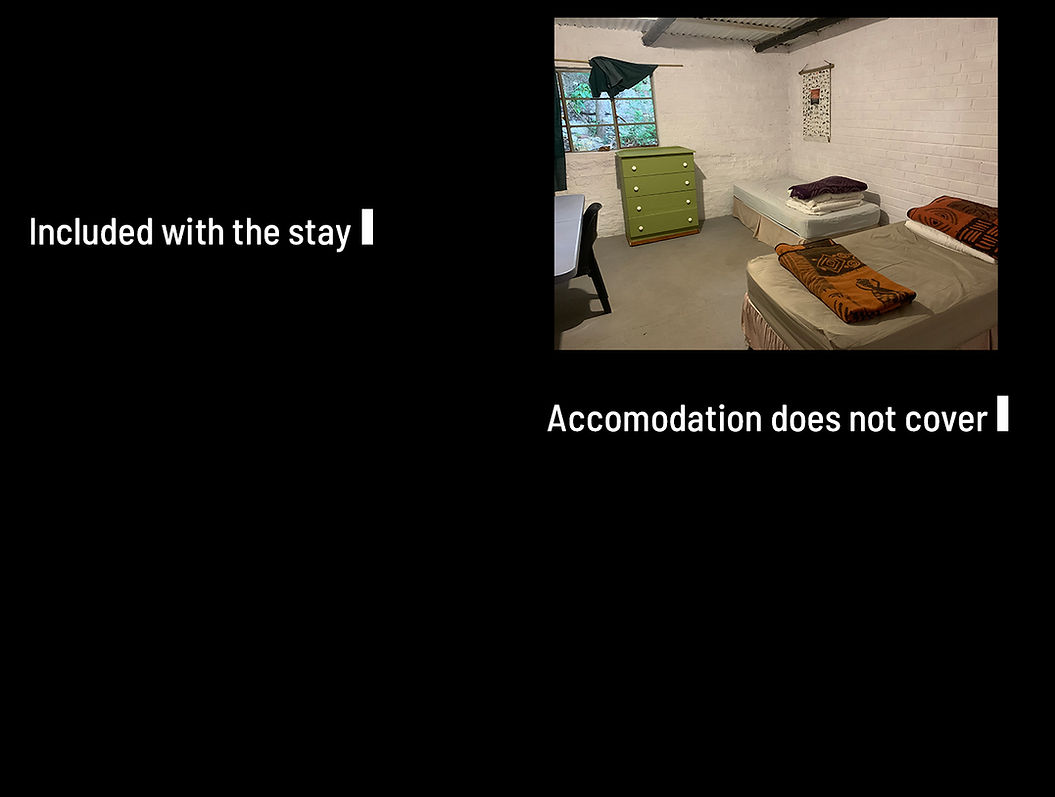top of page



Suitable for interns, post graduate students (Masters or Ph.D.) or students who have to do research for their diploma or degree. Ideally these students should compile a Literature Study and prepare a project outline before their arrival at Lajuma. Qualified and locally experienced Lajuma staff will assist you with the selection and structuring of a project based on your academic background and field of interest and with the prior planning of the project arranged through email. After arrival you will receive an orientation and you will be trained in the techniques that you will use. At this stage the project proposal will also be finalised. Students will work largely independently or in groups or with the academic supervisor to assist them. Technical advice such as plant or animal identification or equipment use will be available whenever required throughout the duration of the project.

On arrival students will receive an orientation to the area and a brief introduction of conservation initiatives in the Soutpansberg. Students are encouraged to work individually and on their own initiative and will have a sense of broad freedom, but guidance and assistance will be everpresent and provided whenever required.
Students can take a town trip every 2 weeks to stock up on supplies and to do some additional shopping in the Makhado shopping center in Louis Trichardt.
Students must bring their own laptop, camera, flashlight and binoculars but have the availibility of certain equipment such as camera traps, GPS, walkie talkies, electronic scales, sherman traps, bucket traps, sound recording equipment and a compound and stereo microscope. A weatherstation is also present that can be used by students to obtain data. Depending on the research done there may be a requirement to purchase additional items that are specific to the topic of research.
A library was recently installed which students can make use of consisting around 300 books including previously peer-reviewed studies done on the Lajuma grounds of various subjects and topics. A lab was recently built to accommodate students with better equipment and a separate research environment for optimal performance and workflow. Additionally students seem to prefer working in the communal area in the barn in the company of their fellow colleagues.

Micaela Boulle is the assistant Operations manager and Academic supervisor.
Born and raised in South Africa, Micaela has a passion for conserving the country’s rich biodiversity. She graduated from Stellenbosch University with a BSc in Conservation Ecology and has hands-on experience in wildlife monitoring, environmental education, and ecological research. Her interests lie in animal behaviour, human-wildlife conflict, and ecosystem preservation. As Assistant Operations Manager, she supports students, coordinates logistics, and contributes to the centre’s research and conservation efforts.
She will supervise students on their projects and in the field, guiding and assisting wherever needed.

- Assistance with projects (see description in previous section).
- The use of available scientific equipment.
- Transport from and to the bus terminus in Louis Trichardt during arrival and departure.
- Participants will be transported to Louis Trichardt every second week for grocery shopping.
- Transport to Louis Trichardt (Makhado) for medical emergencies.
- Wireless internet.
-Meals
-Medical costs
-The cost of consumables for research projects
-Transport from and to the airport
-We provide a pillow and a sheet but participants may have to bring their own sleeping bag (camping, Kruger trips).
-Transport to Louis Trichardt (Makhado) for private traveling.
Interested in an internship ?
Mail to:
Students are accomdated in the ‘Barn’ . It is situated near the main complex. The barn consists of four bedrooms, two bathrooms with hot showers, toilets and basin, communal kitchen and a large central living and working area with fireplace. Includes electric lighting, gas burner, fridge, deep freeze and three gas geysers for hot water.
Wood, gas, electricity and wifi is provided free of cost. Electricity is powered by solar pannels. Electricity is not suitable for high wattage equipment such as irons, kettles or hairdryers since it is generated either through solar systems or hydro-power from the waterfall.
bottom of page
